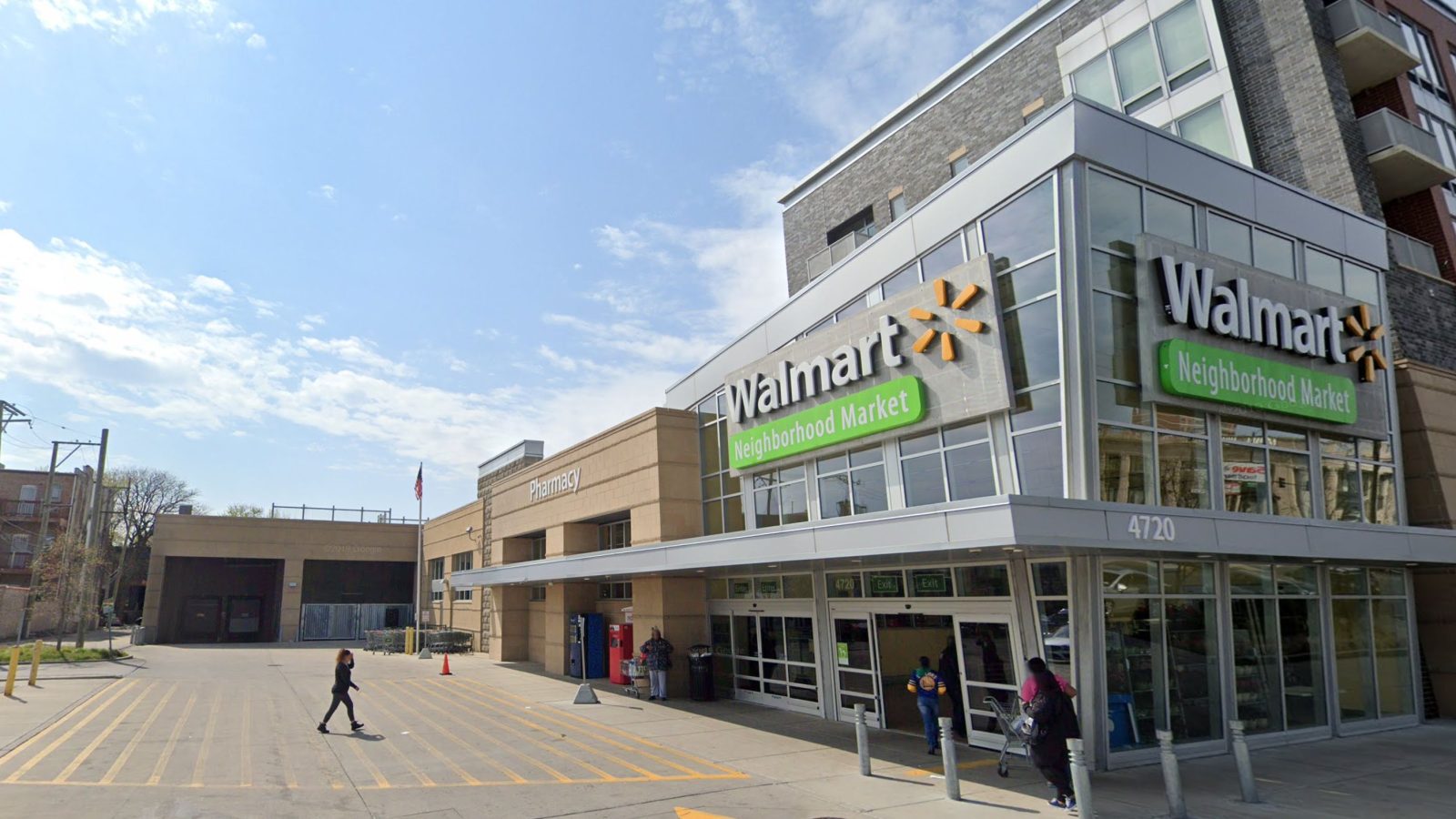Walmart is set to close half of its stores in Chicago, marking a significant shift from its high-profile commitment in 2020 to expand in the city as part of its corporate racial justice initiative following George Floyd’s murder by police.
On Tuesday, Walmart announced that it will shut down four of the eight stores it operates in Chicago starting next week.
Three of these stores are situated in the South and West Side neighborhoods, which are predominantly minority communities that have long faced challenges with grocery and retail access.
The remaining store is located on the North Side, an area that is predominantly White and more affluent.
This decision follows Walmart’s previous assertion that its efforts in Chicago were a “critical part” of its broader $100 million pledge towards advancing racial equity in 2020.
In 2021, Walmart CEO Doug McMillon stated, “Chicago will be an example of what’s possible when we leverage business, government, and community organizations for the good of all.”
The move also comes after over a decade of concerted efforts by Chicago’s political leaders to attract Walmart and other retail chains to underserved areas to stimulate economic development.
Previously, Walmart had promised, “We are not going anywhere” in 2020. However, it is now closing four of its Chicago locations.
Walmart cited substantial annual losses from these four stores, which have nearly doubled over the past five years.
Despite attempts to improve the stores and significant investment in the city, Walmart stated, “Unfortunately, these efforts have not materially improved the fundamental business challenges our stores are facing.”
The company mentioned that employees affected by the closures will have the opportunity to transfer to other Walmart locations, and it will collaborate with local leaders to find alternative uses for the buildings.
Walmart noted that while the remaining four stores in Chicago also face similar business challenges, closing the four underperforming locations is believed to give the others a better chance of remaining open.
This announcement highlights a broader trend of major US retailers, including Walmart, scaling back operations in large cities, raising questions about the effectiveness of government strategies that rely on national chains to improve food and retail access in underserved areas.
David Merriman, a professor of public policy, management, and analytics at the University of Illinois Chicago, conducted a 2012 study which found that businesses located closer to Walmart were significantly more likely to close than those farther away.
The study also revealed that the number of jobs lost at nearby retail competitors effectively counterbalanced the number of jobs created at new Walmart stores.
“Communities around the city shouldn’t view Walmart or other big-box retailers as a solution for local economic issues,” Merriman stated.
In 2020, during protests over George Floyd’s murder, Walmart temporarily closed all its Chicago stores. There were concerns about the potential departure of Walmart and other businesses from the city, but Walmart committed to remaining and investing in Chicago.

In June 2020, Chicago Mayor Lori Lightfoot and Walmart’s McMillon announced Walmart’s plans to reopen its stores and also establish two health centers and a training academy in Chicago.
McMillon had previously assured, “Walmart’s commitment to Chicago remains strong. We are not going anywhere.”
He also mentioned that Walmart’s Chicago stores were operating at a loss due to “a combination of our sales, product margin, and expenses,” and stated that Walmart would strive to reduce losses without increasing prices or cutting workers’ wages or hours.
McMillon also indicated that Walmart might have to “revisit these decisions” if they were not successful after a few years, though he hoped this would not be necessary.
A year later, McMillon reiterated Walmart’s commitment to serving Chicago, building a successful business, and collaborating with those invested in the city’s potential.
In a statement released on Tuesday, Mayor Lightfoot expressed her disappointment, stating that Walmart’s closure of these stores would create barriers to basic needs for thousands of residents.
She urged Walmart to ensure that the soon-to-be-closed stores are repurposed with significant community engagement to serve the neighborhoods.
Walmart’s decision follows its attempts over the years to establish a presence in major US cities.
The company, which expanded into rural and suburban areas during the 1980s and 1990s, faced significant resistance in cities like New York, Los Angeles, and Chicago from unions and Democratic opponents concerned about the impact on wages and small businesses.
In 2006, Walmart managed to open its first store in Chicago after the then-mayor, Richard M. Daley, vetoed an ordinance requiring large stores to pay a $10 minimum wage.
Leaders in Chicago saw Walmart’s entry as a boost to the economy and a way to provide access to fresh food in the South Side area.
“This Wal-Mart is a win-win-win — a win for the local economy, a win for local job creation, and a win for the Chicagoans,” said then-mayor Rahm Emanuel in 2012 when Walmart opened a store in the Chatham neighborhood, which is now among those slated for closure.
Critics like Stacy Mitchell, co-executive director of the Institute for Local Self-Reliance, argue that the city’s focus should have been on supporting smaller grocers rather than trying to attract big chains.
Walmart’s recent retrenchment includes closures in Portland, Oregon, as well.
The challenges faced by Walmart and other national chains in urban settings—higher rents, increased theft and crime, reduced foot traffic due to the COVID-19 pandemic, and competition from online retailers like Amazon—highlight the difficulties of maintaining profitability in major cities.






Leave a Reply